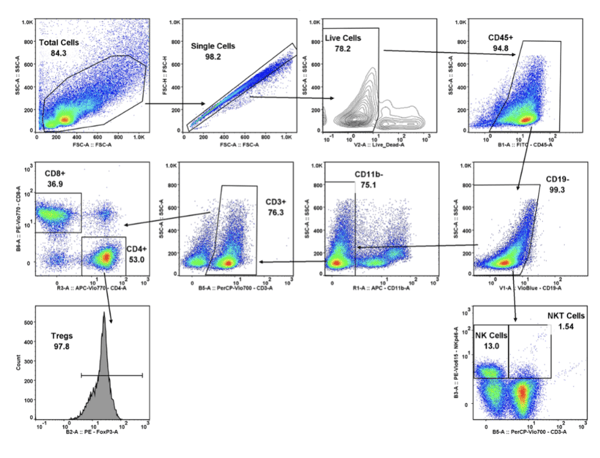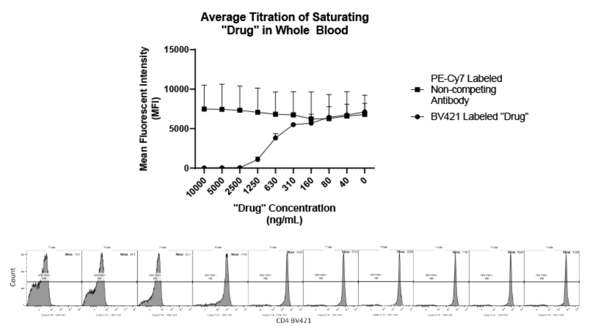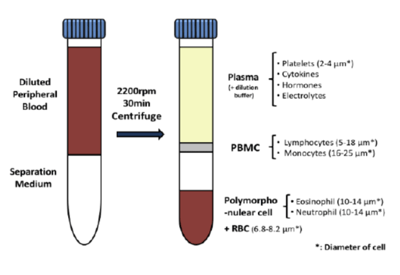Flow cytometry is a powerful technique used in immuno-oncology research to analyze the physical and chemical characteristics of particles in a fluid as it passes through at least one laser. This technology allows researchers to get detailed insights into the complex immune system and its response to cancer, making it invaluable in the development of new therapies and drugs. Here, we'll explore the top 5 flow cytometry assays that are essential additions to your immuno-oncology research.
1. Immune Cell Phenotyping
Immune cell phenotyping is foundational in immuno-oncology research. This assay allows for the detailed characterization and identification of various immune cells within a sample, such as T cells, B cells, macrophages, and dendritic cells. Understanding the composition and state of the immune cell population in the tumor microenvironment can reveal insights into the immune response to cancer, guiding the development of immunotherapies.
Figure 1: Immune cell population analysis of subcutaneous CT26 murine colon carcinoma tumors

2. Intracellular Cytokine Staining (ICS)
Cytokines play crucial roles in the immune response against cancer, mediating cell signaling that can either promote or inhibit tumor growth. Intracellular cytokine staining allows for the detection of cytokines produced by cells, providing insights into the functional status of immune cells. ICS can be particularly valuable in assessing the efficacy of immunotherapies that aim to boost the immune system's ability to fight cancer by revealing how immune cells are activated and how they interact with tumor cells.
3. Receptor Occupancy Assays
Receptor Occupancy (RO) assays are crucial for understanding the mechanism of action of therapeutic antibodies and their interactions with cell surface receptors. By measuring the binding of therapeutic antibodies to their target receptors on the cell surface, RO assays provide insights into the drug's pharmacodynamics and its potential effectiveness in modulating the immune response against cancer cells.
Figure 2: Binding of fluorophore labeled “drug” in relation to decreasing dose of unlabeled “drug”

4. PBMC Services
Peripheral Blood Mononuclear Cells (PBMC) services encompass the isolation, preservation, and analysis of PBMCs from blood samples. PBMCs are critical components of the immune system, including lymphocytes (T cells, B cells, and NK cells) and monocytes, which play a pivotal role in the body's immune response to cancer. Flow cytometry assays involving PBMCs can assess the efficacy of immunotherapies by analyzing the activation, proliferation, and function of these cells.
Figure 3: Evaluate responses of PBMCs by profiling the function/phenotype of subpopulations

5. Cellular Function Assays
Cellular function assays using flow cytometry provide comprehensive insights into the functional capabilities of immune cells in response to cancer. These assays can measure various parameters, such as cell proliferation, cytotoxic activity, apoptosis (programmed cell death), and phagocytosis. Understanding these functional aspects of immune cells is essential for developing and optimizing immunotherapeutic strategies.
Incorporating these flow cytometry assays into your immuno-oncology research can significantly enhance your understanding of the immune system's interaction with cancer, facilitating the development of more effective and targeted therapies. By leveraging the capabilities of flow cytometry, researchers can gain detailed insights into the mechanisms of action of immunotherapies, their effects on the immune system, and their potential side effects, thereby accelerating the advancement of cancer treatment.


